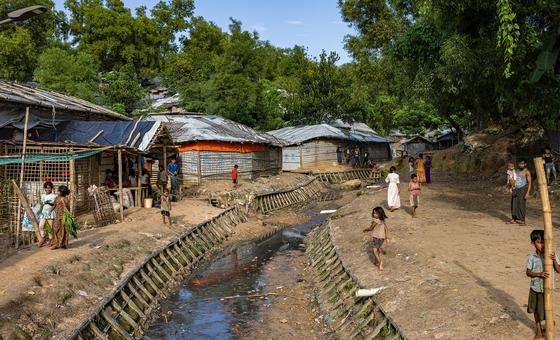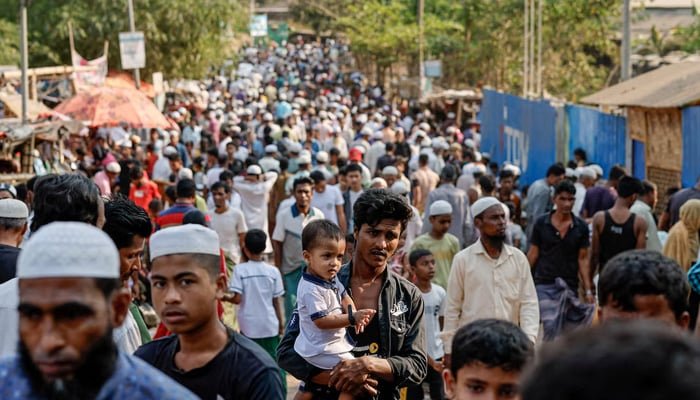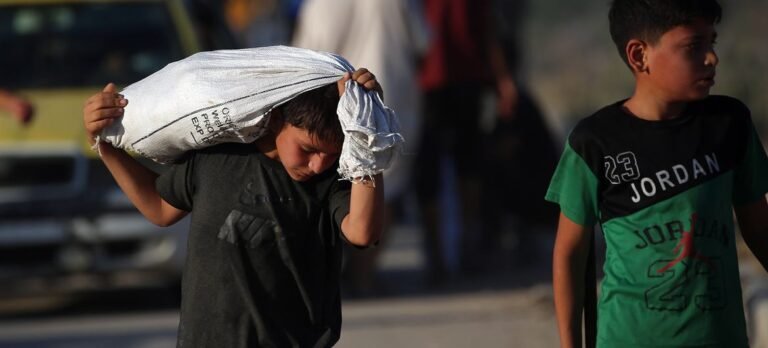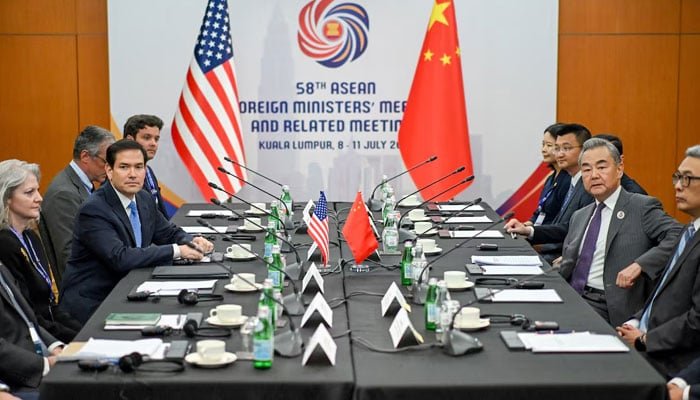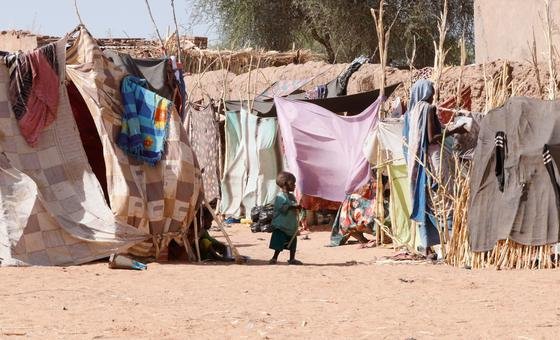As armed clashes intensify and conditions worsen inside Myanmar, thousands continue to cross the border seeking safety in the overcrowded camps of Cox’s Bazar, where nearly one million Rohingya refugees already live in densely populated camps.
“This is the largest movement of Rohingya refugees into Bangladesh since 2017,” said Babar Baloch, spokesperson for the UN refugee agency, UNHCR, briefing journalists in Geneva on Friday.
He clarified that unlike the mass influx in 2017, when some 750,000 Rohingya fled deadly violence in Rakhine state, this uptick in refugees has unfolded more gradually.
Advocating for asylum
UNHCR is working closely with local authorities to respond to urgent humanitarian needs.
“As the conflict in Myanmar continues unabated, we are advocating with the Bangladeshi authorities to provide managed access to safety and asylum for civilians fleeing the conflict,” he said.
Bangladesh has long provided refuge to the Rohingya, a mostly Muslim minority community in Myanmar, which is mainly Buddhist.
The country currently hosts nearly one million people in the refugee camps and the recent arrivals – many of them women and children – are placing further strain on resources. Many are relying heavily on local solidarity and sharing limited resources with those already living in the camps.
Appeal for support
By the end of June, nearly 121,000 newly arrived refugees had been biometrically registered, although many more are believed to be residing informally in the camps. Access to adequate shelter remains a major concern as facilities struggle to absorb the new population.
“These new arrivals join another nearly one million Rohingya refugees crammed into just 24 square kilometres,” said Mr. Baloch. “More humanitarian support is urgently required.”
Aid partners have been able to provide basic services including food, medical care, education, and essential relief items. However, the response is now under serious threat due to a lack of funding.
UNHCR warned that the 2024 humanitarian appeal for $255 million is only 35 per cent funded. Without immediate financial support, the entire operation could face systemic collapse.
Action needed now
Unless additional funds are secured, health services will be severely disrupted by September and essential cooking fuel — liquefied petroleum gas (LPG) – will run out by December. Food assistance will stop and education for some 230,000 Rohingya children, including 63,000 new arrivals, is in danger of being discontinued.
Despite a strictly controlled and officially closed border, the Government of Bangladesh has allowed new arrivals to access emergency services in the camps. The UN agency expressed deep appreciation for this humanitarian gesture under highly challenging conditions.
“We don’t have the resources to take care of the new arrivals and also those who were there before them,” said Mr. Baloch. “Everything will be impacted.”
As displacement from Rakhine state continues, UNHCR and its partners are urging the international community to act swiftly. Without immediate and sustained support, the already fragile humanitarian response in Cox’s Bazar could begin to unravel – with devastating consequences for more than one million people who rely on it for survival.

